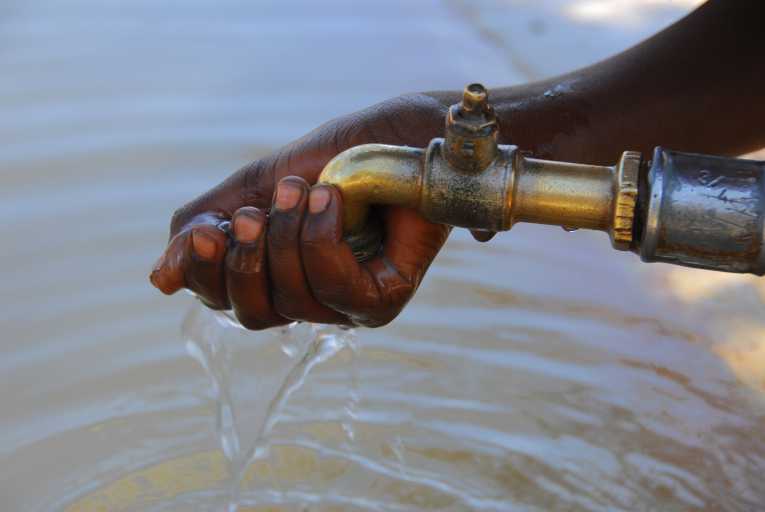The day before World Water Day 2011World Water Day 2011, this Tuesday Mar-22, the UN Environment Program (UNEP) has released a report, Green Hills, Blue Cities which focuses on the plight of the 'water poor' in African cities. The report, produced together with UN-Habitat, outlines the water challenges facing Africa's burgeoning urban population.
It holds out hope for a 'Green Economy' solution to the increasing numbers suffering water poverty. Those solutions look away from big finance and water engineering works, and towards community-led, ecosystem-focused efforts - ones that could more quickly plug the gap between the water-haves, and the water-have-nots.
Africa is the world's fastest urbanizing continent, and that pace of growth has left fundamental services neglected for many, says the report. Since 1990, the number of city-dwellers without clean drinking water has leaped from 30 million to 55 million; and the number without adequate sanitation jumped from 85 million to 175 million. It is these numbers which the report is calling for action on, as part of next year's Rio+20 conference.
Achim Steiner, the UNEP Executive Director, said ''These are the stark realities and the sobering facts which need to be addressed as nations prepare for the landmark UN Conference on Sustainable Development in 2012.'' That conference is seeking to map out Sustainable Development, within the background of a changing climate, exactly 20 years after the 1992 Rio Earth Summit.
Efforts to improve the situation don't need to be expensive and time consuming - but they do need a change in outlook, across governments and NGOs. The report suggests looking at urban water issues through an ecosystems prism. That means assessing the provision of water supplies from the water-shed, to the sea, and including urban communities affected in the process.
So for example, actions to preserve water-sheds, which often lie outside of city boundaries, should be taken. These play a natural role in the cleaning of water supplies destined for urban consumption, and in preventing the silting of river courses. The communities living in those areas should be rewarded economically for helping preserve those water services. Similarly, those living in the cities should be encouraged to take part in demand management, and to increase local supply, though rain-water harvesting, and wast-water recycling schemes.
Mr Steiner stressed the relatively low cost of such approaches ''... public policies that re-direct only a tenth of a per cent of global GDP per year can assist in not only addressing the sanitation challenge but conserve freshwater by reducing water demand by a fifth over the coming decades compared to projected trends.''










